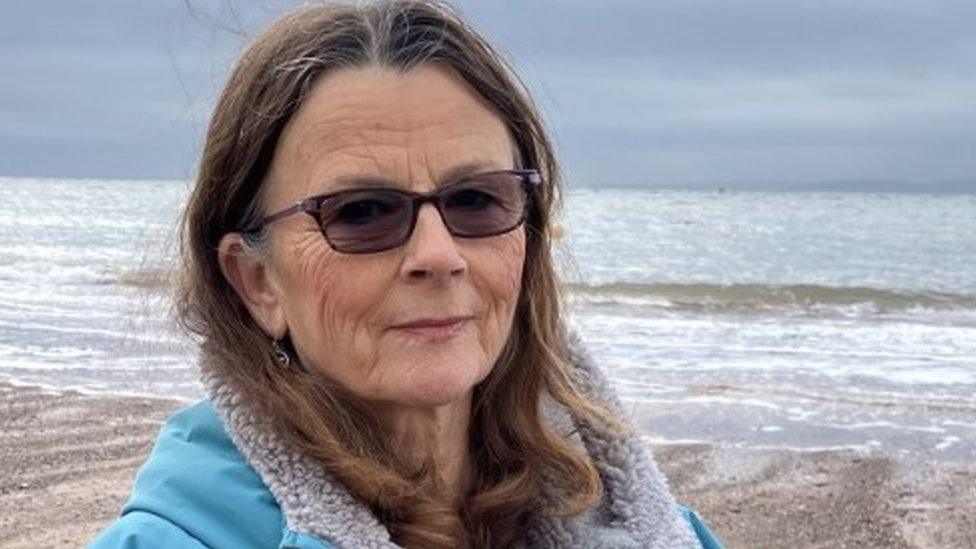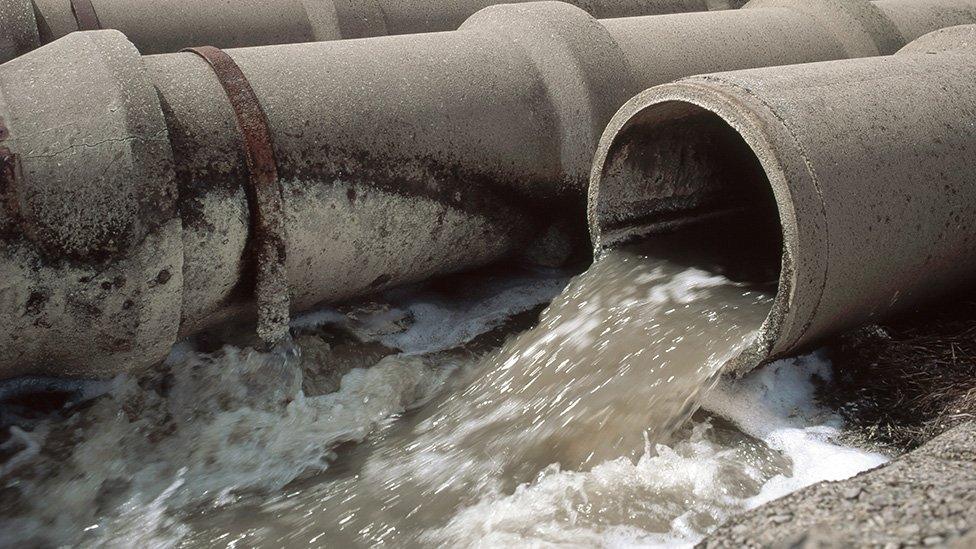'We need our water to be clean'
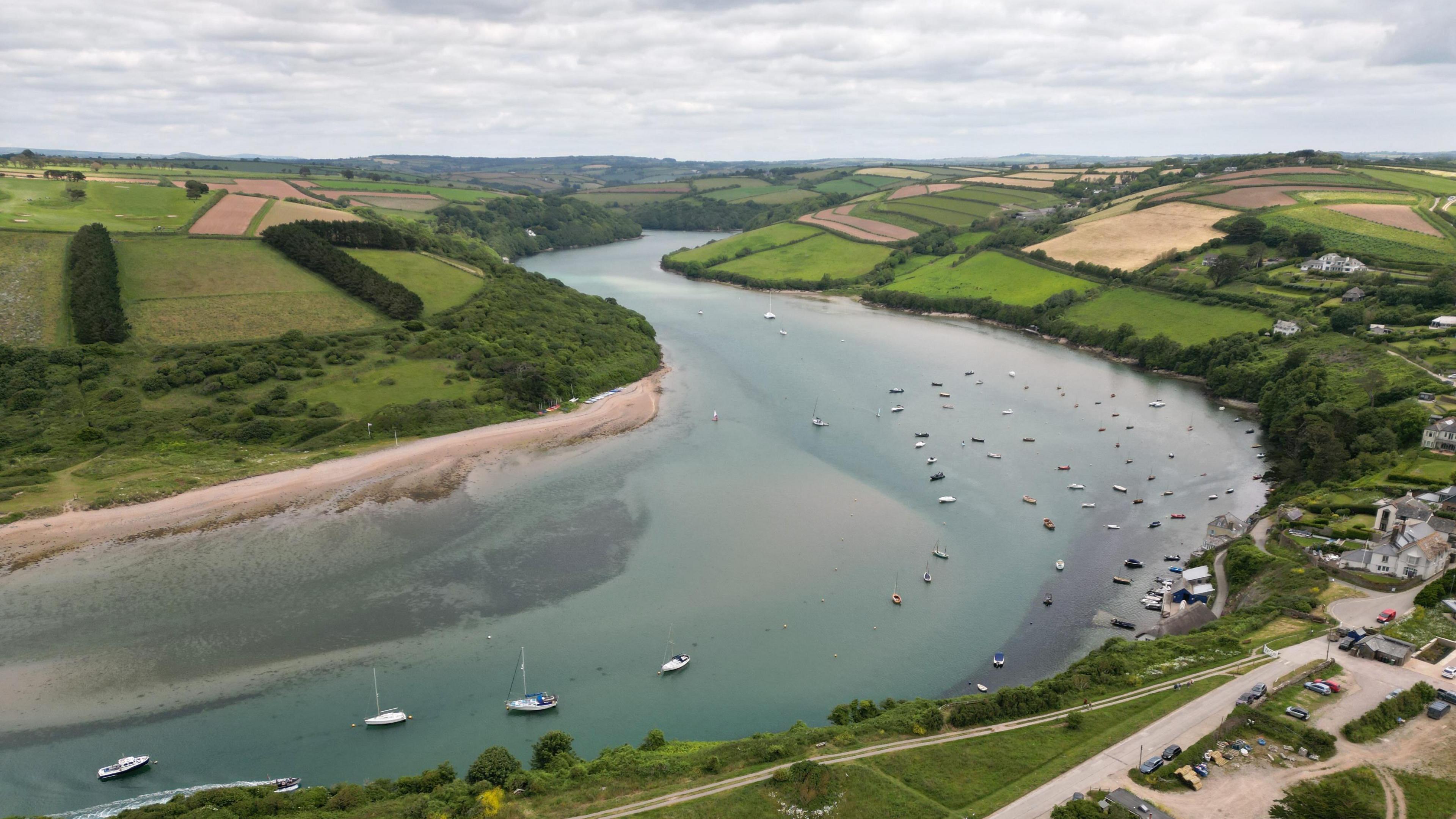
The River Avon in Devon stretches from Dartmoor to the sea at Bigbury Bay
- Published
With river and sea pollution dominating headlines in recent years, what do voters want politicians to do about the issue?
"Our very existence depends on water and it needs to be clean," says Louise Wainwright, standing on a bank of the River Avon in Devon.
The waterway covers a 23-mile (37km) stretch from its source on Dartmoor to the Avon Dam, where water is siphoned off for drinking, to the sea at Bigbury Bay where people play in the surf.
"This looks like a picture postcard river, but it simply is not,” says Mrs Wainwright.
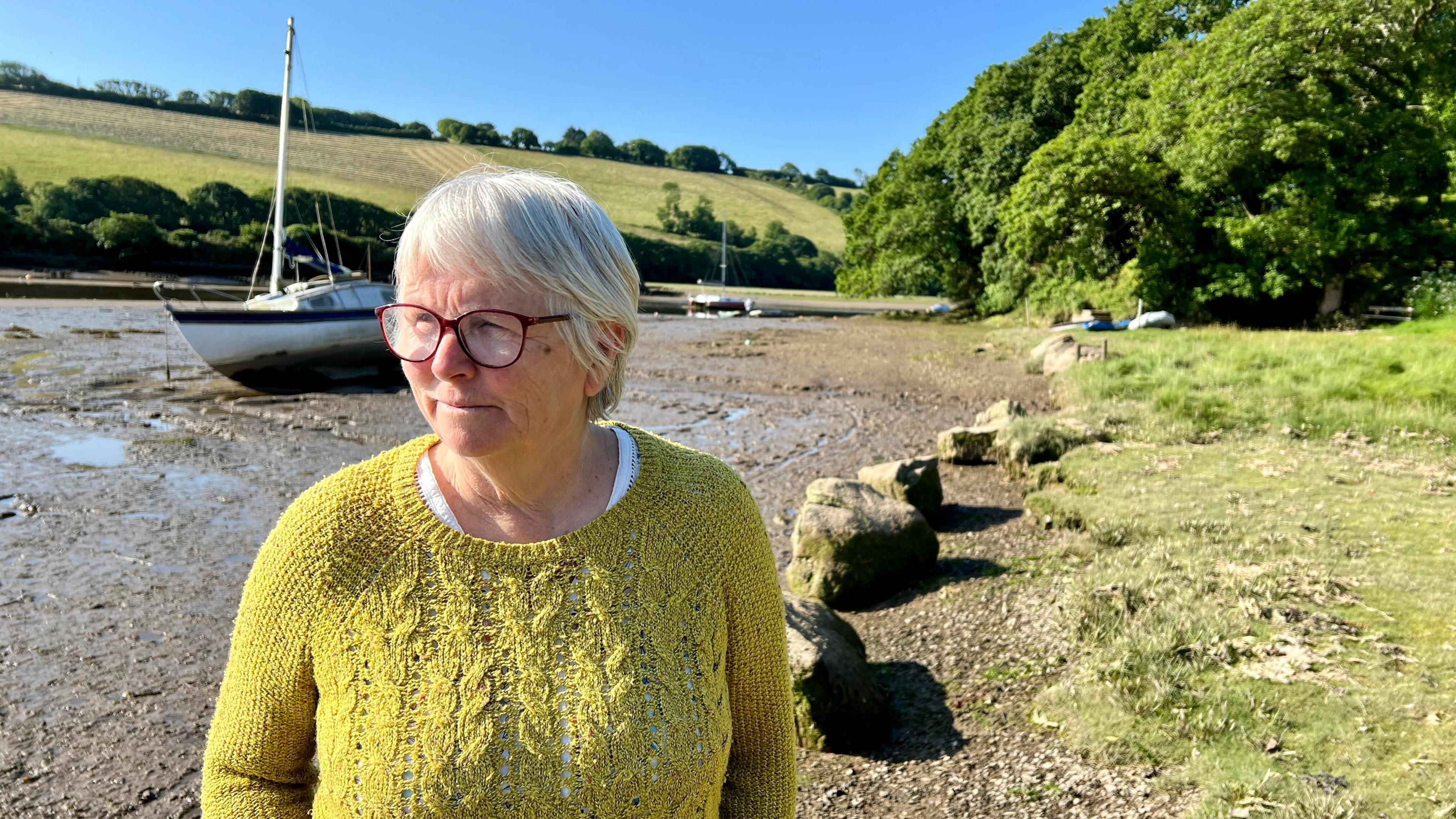
Louise Wainwright said the UK needs a government which puts the environment first
The 67-year-old, who lives near the river, set up the South Devon River Champions in response to "the increasing evidence of the ecological damage to aquatic life that swims, lives and breathes in these waters all year round".
She said: "They have no vote or voice, they have suffered long before it became so bad that you might need to think twice before swimming in it."
The "forever chemicals, agricultural pollution, and sewage pollution all need to be addressed to restore the health of our rivers", she added.
"And for that, we need a government that actually puts the environment first."
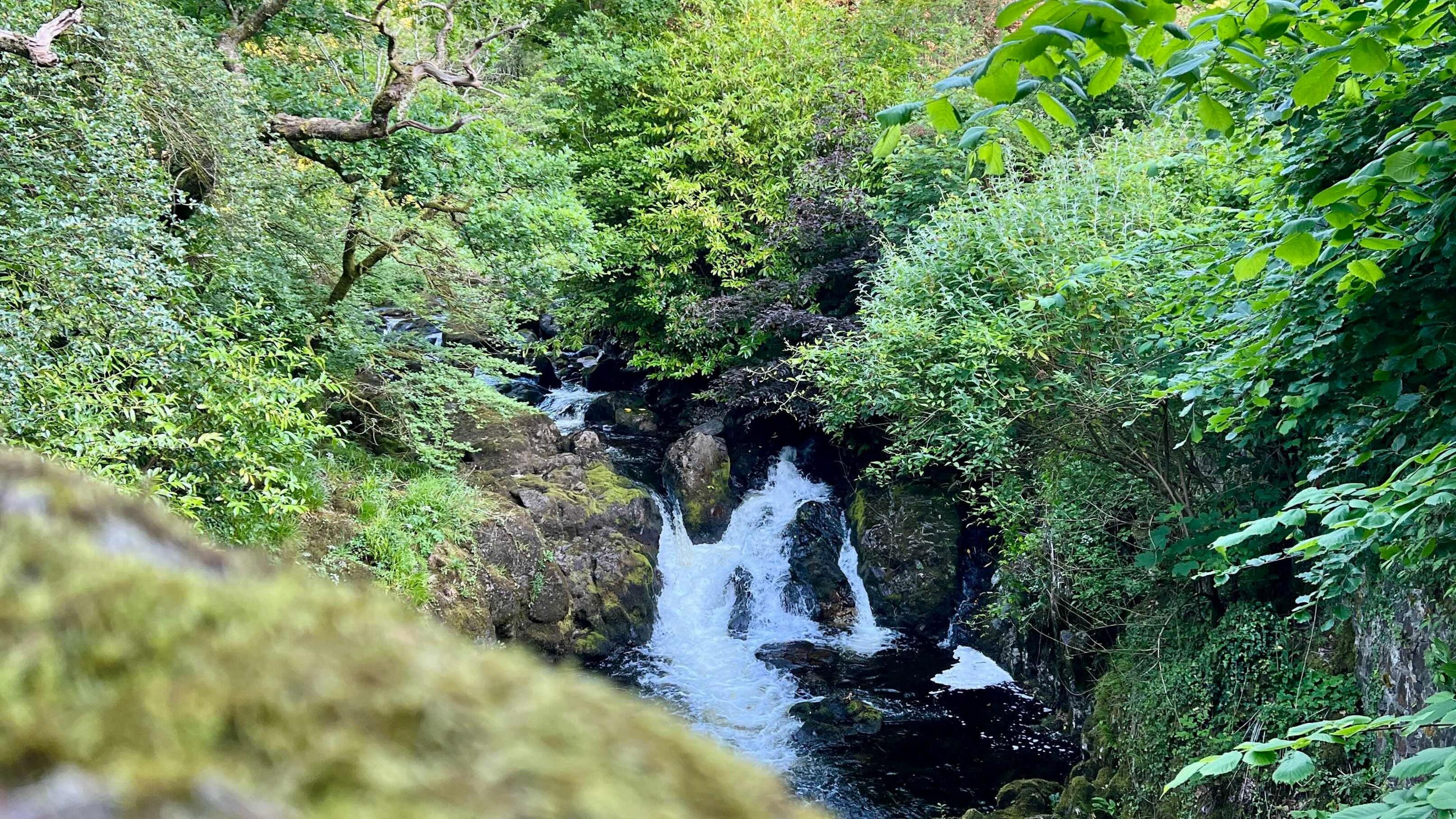
Environment Agency figures show four treatment plants discharged sewage into the river 397 times last year for a total of 4,678 hours
Along the river's banks are a series of sewage treatment plants with storm water overflows (SWO) which can be used when capacity is exceeded during heavy rainfall, especially if dry ground cannot quickly absorb large quantities of water.
Water companies are allowed to release a limited amount of sewage during periods of excess rain, but there is also evidence of "dry spills", which can damage the local environment and pose a health risk to swimmers.
Environment Agency figures, external show that last year four treatment plants, at South Brent, Diptford, Moreleigh and Aveton Gifford, discharged sewage into the river 397 times for a total of 4,678 hours.
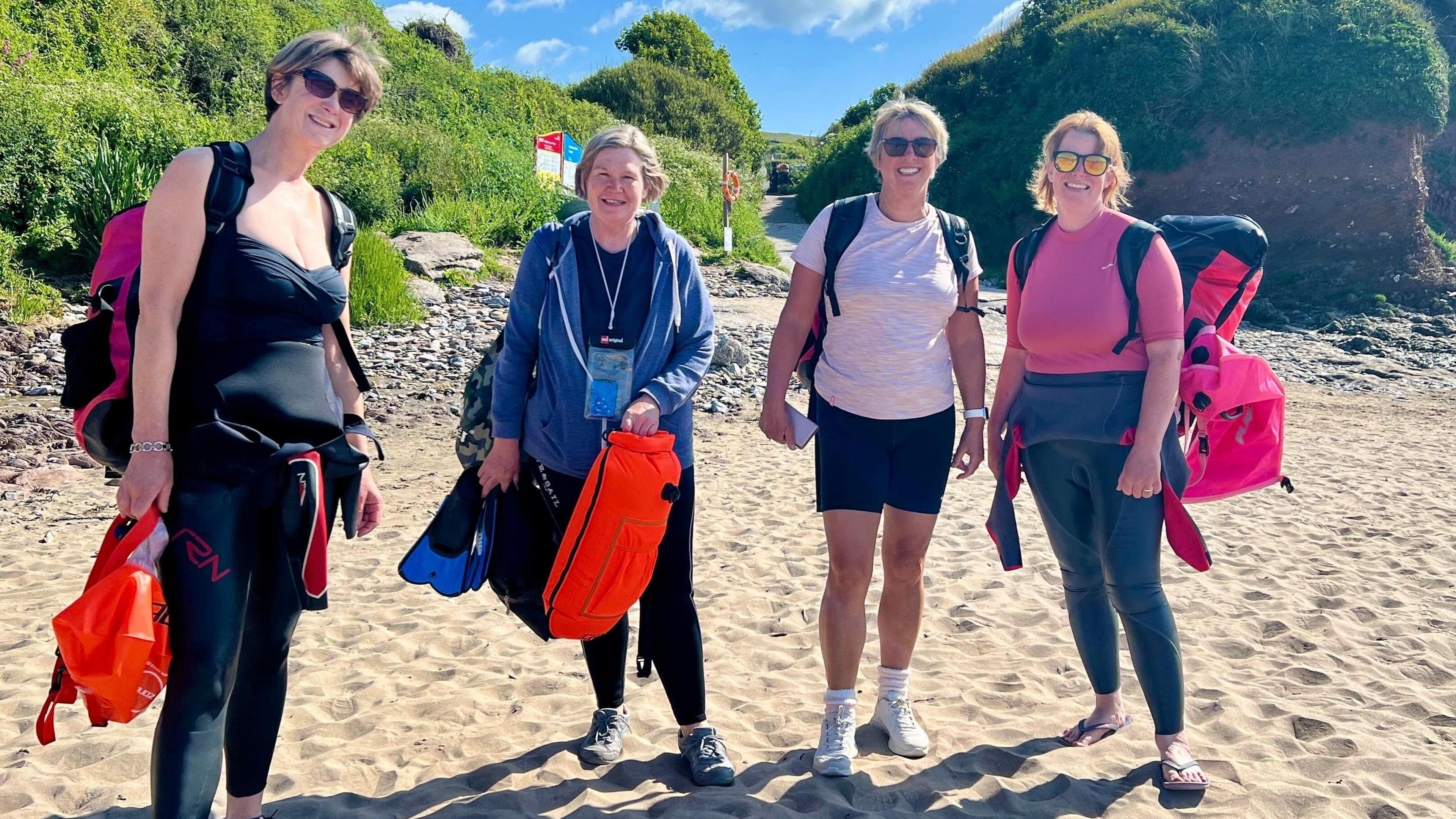
Annette Clenahan, Jessica Burgess, Amanda Sanders and Ellie Walsh preparing to swim around around Burgh Island in the bay
Getting ready to enter the water at Bigbury Bay, where the Avon ends it journey, are swimmers Jessica Burgess and Amanda Sanders who have travelled from Torquay where they say water pollution is a major issue.
"We love our waters, we live by the sea, we pay a lot in water rates and we expect water quality," Ms Burgess said.
"But if there's been a lot of rainfall, we know it's not going to be safe.
"It is just so frustrating because water quality has been an issue which has been going on for years and years and years."
Ms Sanders said: "What needs to change? The water companies need to be held properly responsible, they need to invest in their own infrastructure, rather than the priority always been to the shareholders."
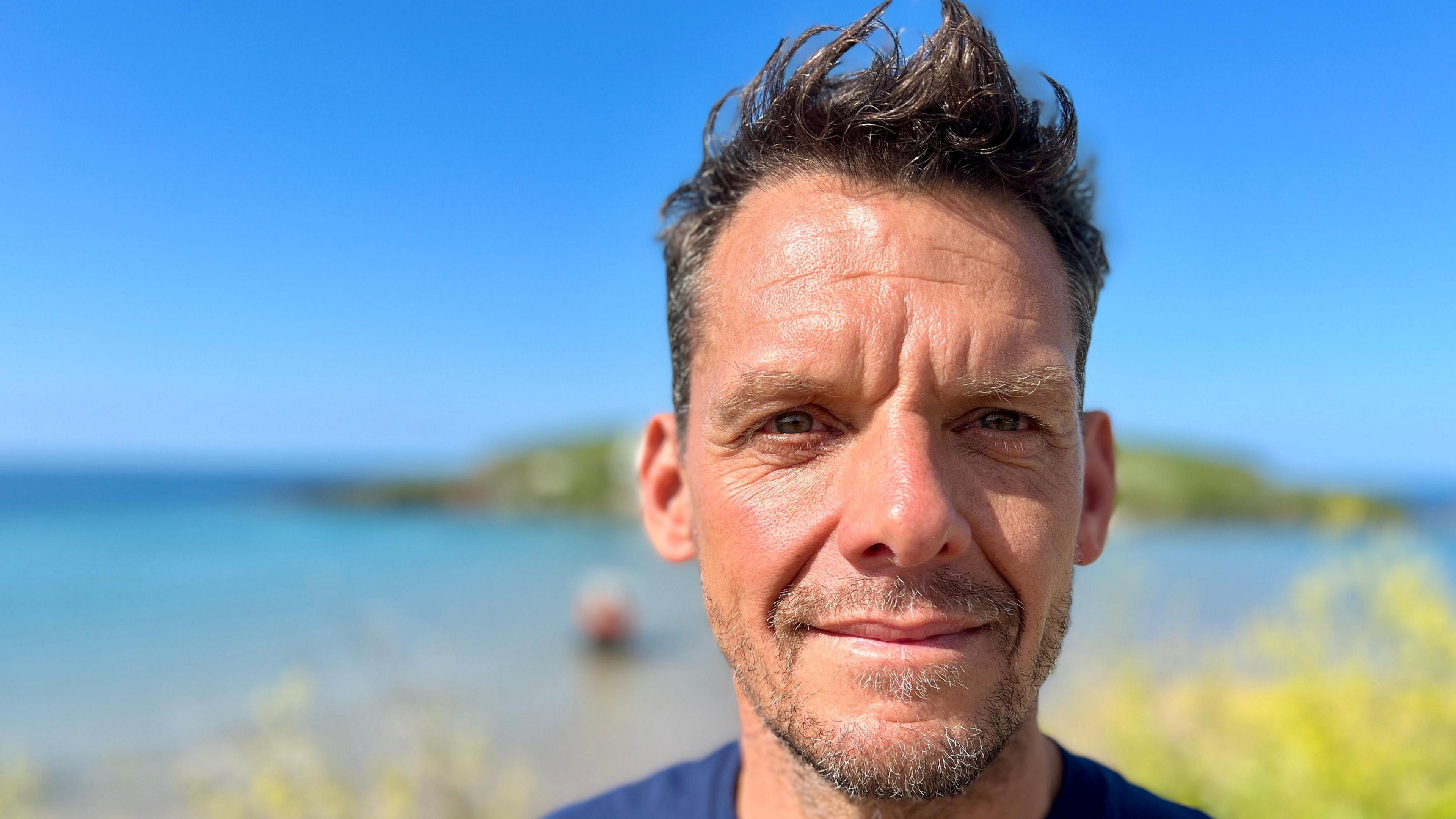
Loic Doison takes swimmers around Burgh Island
Further along the beach, Loic Doison, who runs Coast to Coast Water Safety, is supervising another group of swimmers heading out around Burgh Island where the water is consistently graded as excellent by the Environment Agency.
"We are entering the summer, it's going to get very busy here and the impact of pollution is not only on the environment, but on the people working here, making a living from outdoors activities," he said.
"I take people swimming in there and it's a constant monitoring of the condition of the water and pressure on us to make sure it's fine to take people out."
Testing of water quality by the Environment Agency currently runs from May to September.
Mr Doison thinks there should be year-round monitoring and faster reports of pollution, which he says can take a week to appear.
"We should be able to enjoy it year-round without worrying about being potentially sick," he added.
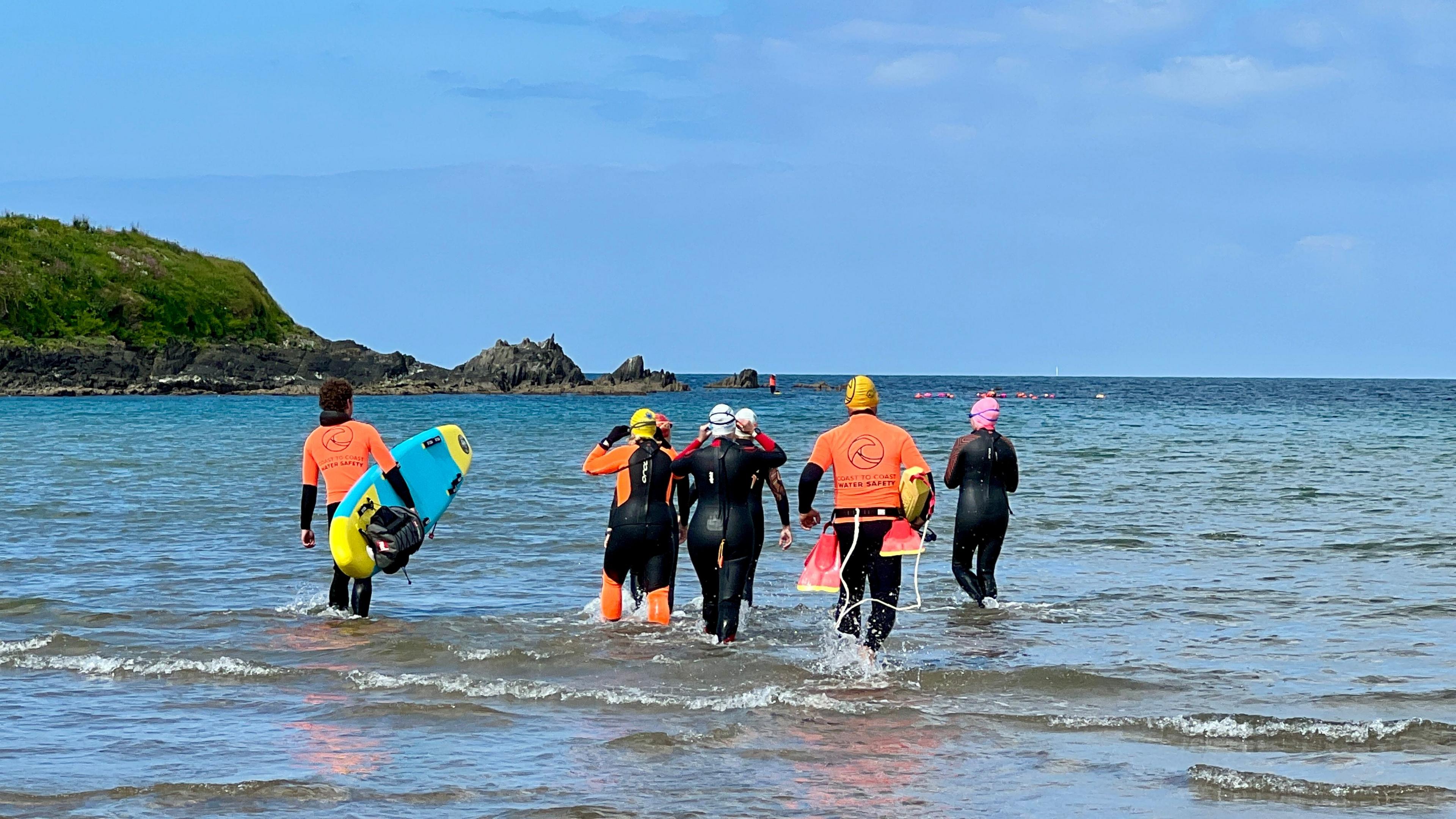
Swimmers setting off in Bigbury Bay where the water is consistently graded as excellent by the Environment Agency
Above the beach, opening the doors to her family-run surf school, is Annika Connolly.
She said water companies "need to be held accountable for the quality of the water".
"Even though the issues don't affect us so much down here at Bigbury, it's something that you hear about a lot around the South West," she said.
"I think there needs to be more regulation.
"I think that they can't just get away with not investing in the infrastructure because you don't see things getting better.
"People spend a lot of their leisure time at the coast and water quality is really important."
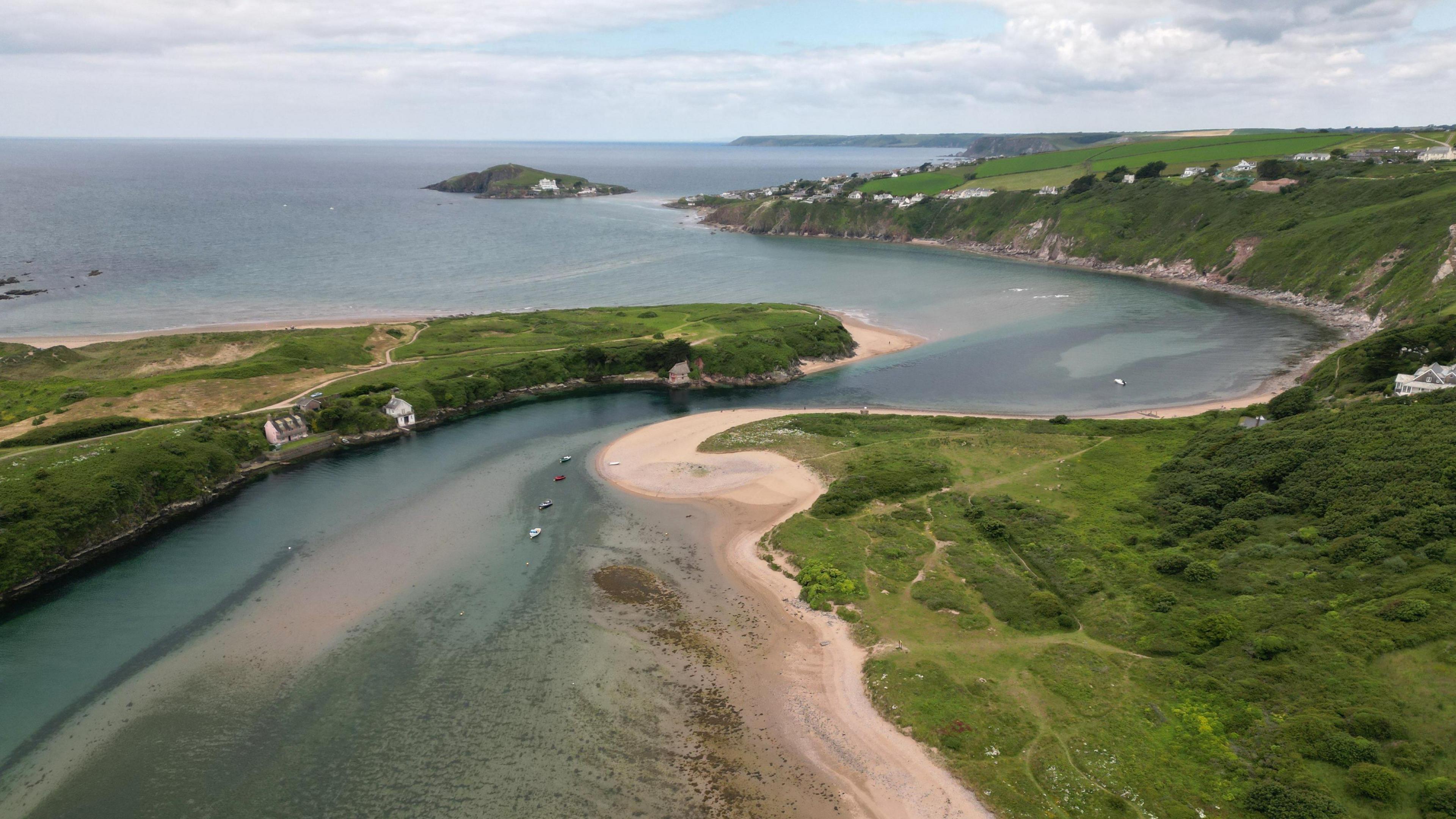
The Avon opens up into the sea at Bigbury Bay
In a statement South West Water said: “We care about our 860 miles of coastline, our region’s 100% bathing water quality, which we have successfully maintained for three consecutive years, and protecting the environment now and in the future.
"We were one of the first water companies to have all our storm overflows monitored meaning we know exactly what is happening, when and where, allowing us to target investment and make changes where it matters most.
"We are serious about tackling storm overflows and change of this scale takes time, ambition, and increased investment – and that is why we are investing £850m in our region over two years."
It said the increase in the storm overflow spills this year can be accounted for by the amount of named storms and weather warnings in 2023.
"It’s clear we need to redesign our systems, which we are already doing," it said.
"We will also be the first water company to meet the government target of less than 10 spills per overflow, per year – a decade ahead of target."

What do the political parties say?
Sewage pollution of our rivers and seas has given rise to one of the most bitter and impassioned political debates of recent months.
The Conservatives say they’ve done more than any previous government to tackle the problem – and we are more aware of pollution incidents now because monitoring has massively increased under their watch.
Opposition parties say the situation is getting worse and the Conservatives should have gone further and faster.
Labour says it would give the water regulator Ofwat powers to block bonuses for the bosses of water companies who cause illegal pollution, while those who oversee repeated law-breaking will face criminal charges.
Companies would be forced to monitor every single water outlet under independent supervision.
The Conservative manifesto says they will work with the regulator to further hold companies to account, including banning executive bonuses if a company has committed a serious criminal breach.
They say this builds on their decision to allow unlimited fines for illegal pollution incidents.
Fines from water companies will be re-invested in river restoration projects.
The Liberal Democrat manifesto promises to introduce a Sewage Tax on water company profits and to enforce existing laws to ensure that the storm overflows only function in exceptional circumstances.
The Lib Dems also say they would set legally binding targets to prevent sewage dumping into bathing waters and highly sensitive nature sites by 2030.
The Green Party manifesto pledges to “end the scandal of sewage pouring into our rivers and seas by taking the water companies back into public ownership”.
You can use the BBC News lookup tool to find out which constituency you are in, who is standing as a candidate in your area and which polling station you can vote at.
Additional reporting by Martyn Oates, BBC South West's political editor
Follow BBC Devon on X (formerly Twitter), external, Facebook, external and Instagram, external. Send your story ideas to spotlight@bbc.co.uk, external.
Related topics
Related internet links
- Published3 July 2024

Related stories
- Published1 June 2023
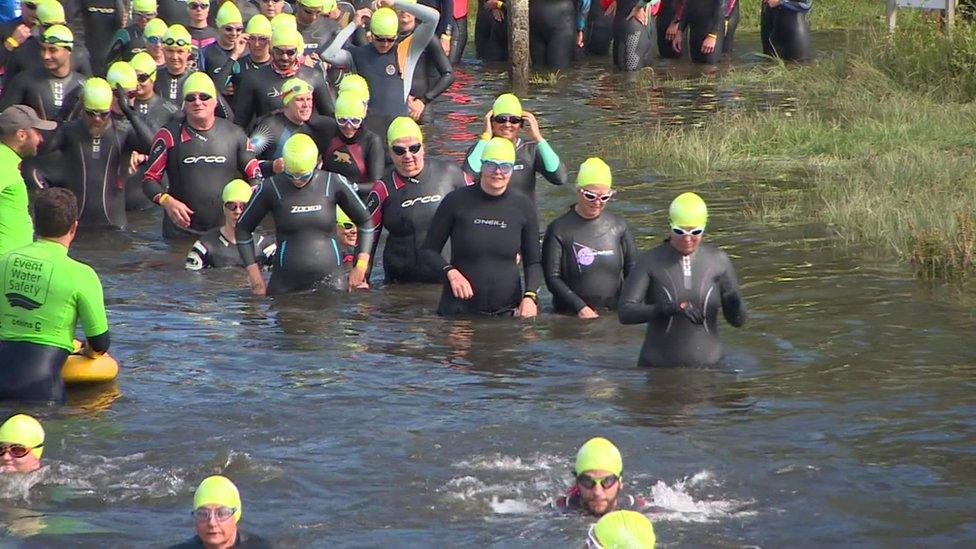
- Published22 November 2023
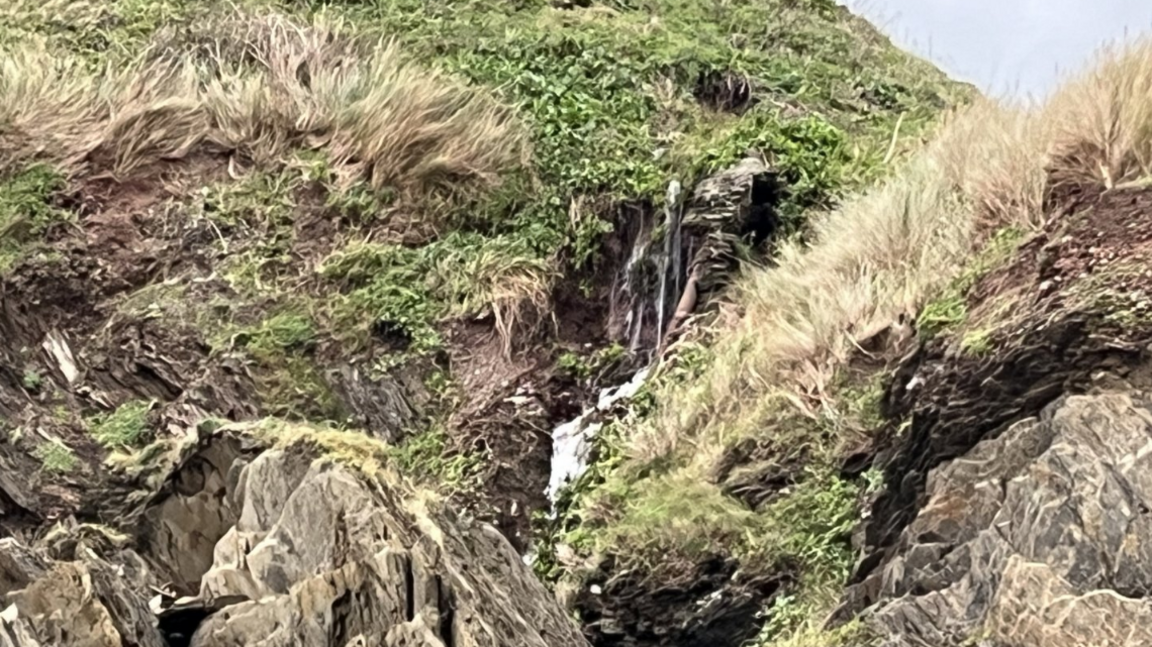
- Published25 May 2023
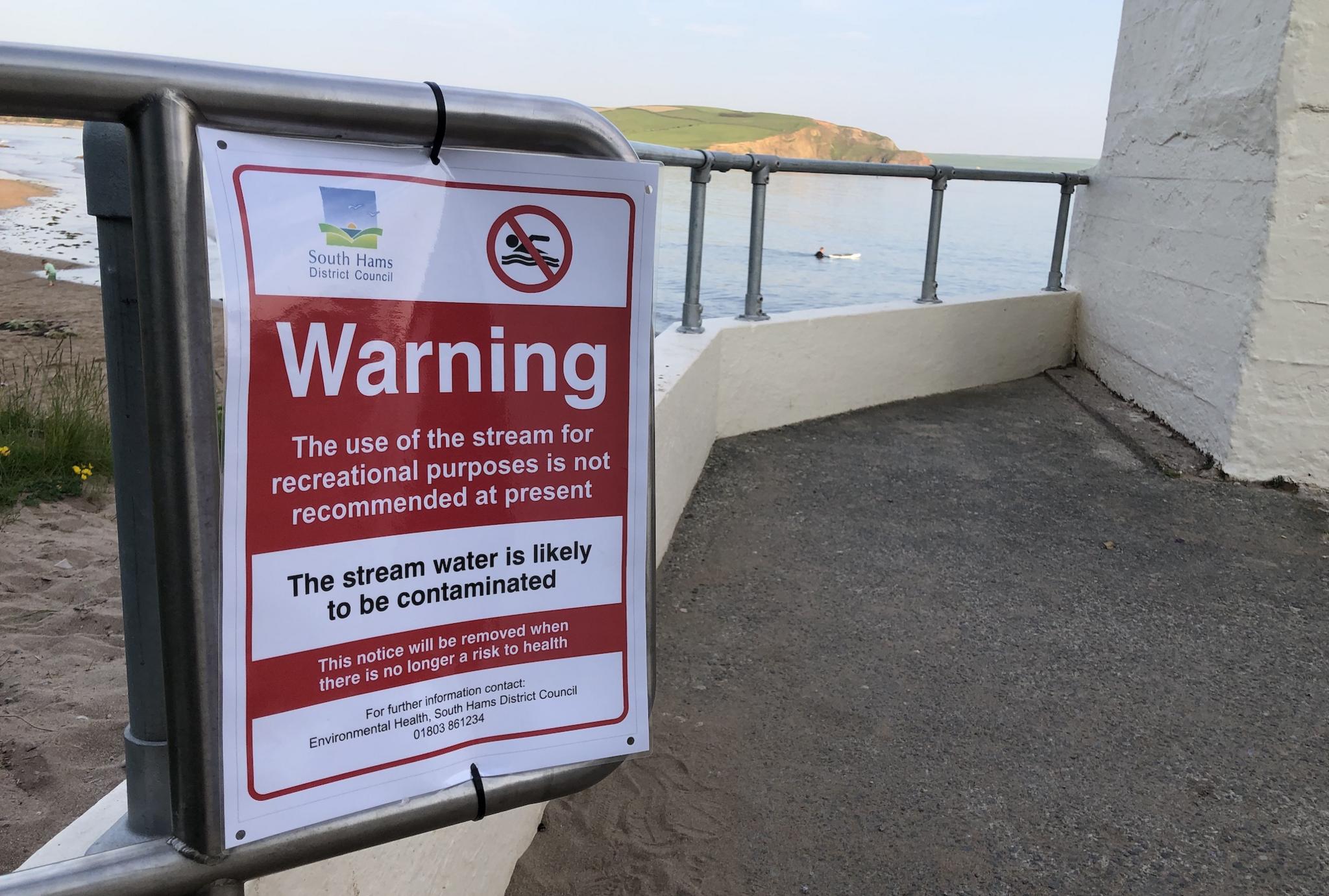
- Published1 February 2024
